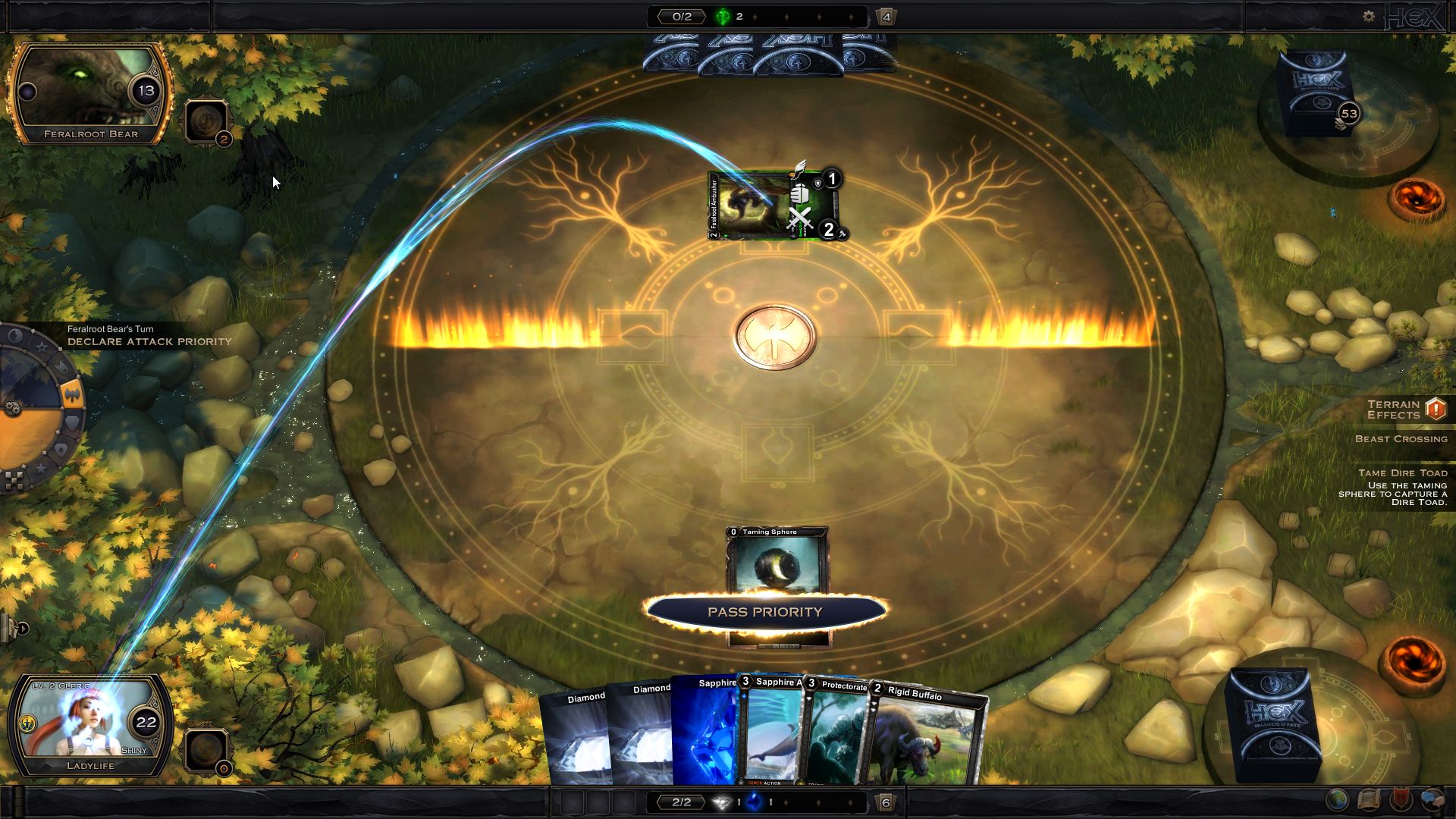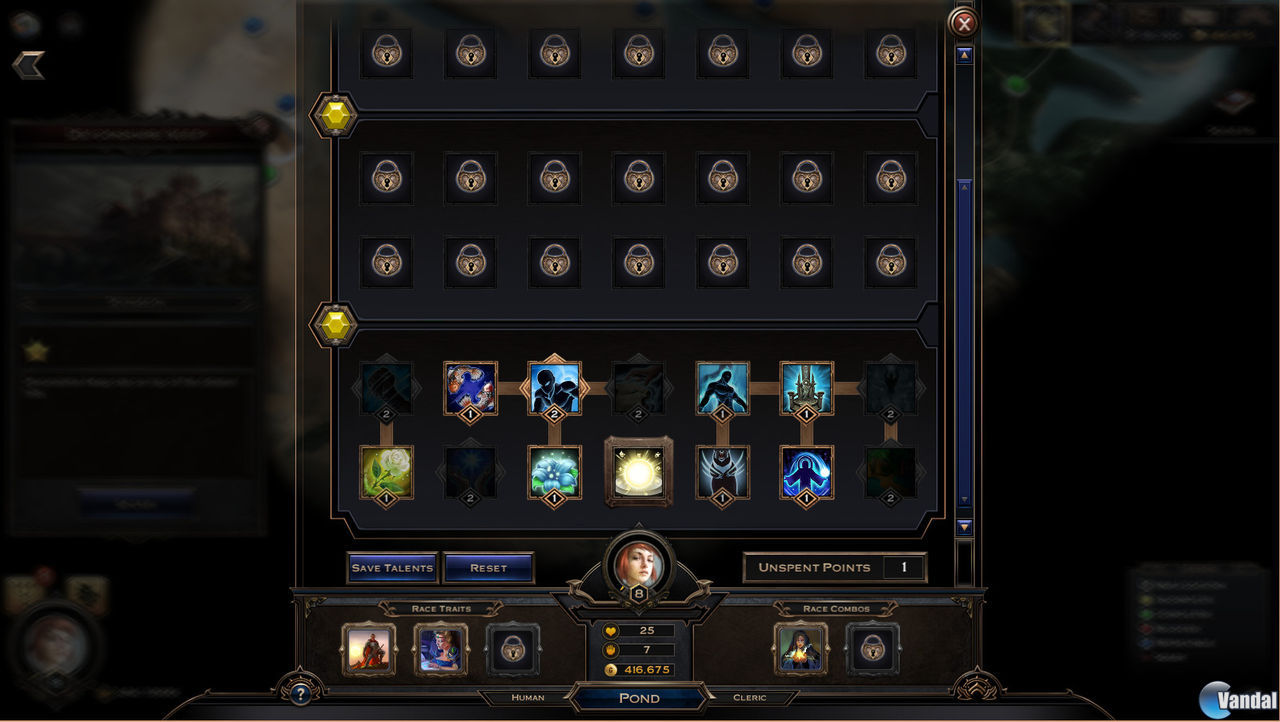
Admittedly if you win the rewards are great and you get to keep the cards you draw but that isn’t the point. But I didn’t much feel like buying the required booster packs each time I entered a tournament. I pride myself on my deck building which, if I’m honest, is where I spend most of my time. Not only do you have to win a tournament but also be able to build a winning deck quickly and with limited resources. One of Hex’s coolest features is the draft tournaments where players draw from booster packs and then build a deck on the spot. But whenever I wanted to enter a tournament I would have to pay. The rest I simply built up from my winnings or booster packs.

I searched online to find winning decks and the decks that could beat them, trotted myself of to the market and bought myself a few key cards. But there was a single giant problem that stopped me from playing. It’s fair to say I fell in love with Hex even way back in the Beta stage. It’s a bit dull when luck is the main factor in your success but there are only a few examples of this with the vast majority of the campaign rewarding your strategy and planning. There is careful deck building required for the tougher fights and for the ridiculously tough fights an enormous amount of luck. The structure of the campaign is nothing unusual as you work your way around a map completing different battles until you reach a boss and then move to the next area. Hex also offers a fairly robust campaign for you to battle through. Admittedly this is the nature of tournaments but it can still be tedious. If a potential opponent has yet to finish a round you often find yourself waiting around unable to really do anything until they finish. Playing in tournaments can become an extremely time consuming activity however. For me it’s the perfect balance of chess-like strategy and thinking with that little kick that keeps things moving. I rarely find myself stuck in a stalemate or find the game dragging on to the point of boredom.

The pacing of a game of Hex lies somewhere between Hearthstone and MTG. It goes a long way to stopping people getting frustrated and quitting half way through games because they’ve clearly lost because it’s extremely rare that anyone has ever clearly lost. You can never quite be sure who will win until the end with powerful cards always ensuing you have the chance to fight back. Hex doesn’t ever really allow you to feel comfortable or complacent. Many a time I was sat comfortably chipping away my opponents health with a good hand to back up my assault only to have a single late game card thrown in my face and ruin my hard work. Despite all cards being digital only HEX doesn’t rely on fancy effects or 3D trickery to make them look good instead falling back to a great team of artists. There isn’t a card that feels rushed or generic at all. The cards themselves are beautifully designed and there’s some seriously good artwork on each and every one. Creature cards are again similar to MTG and Pokémon with each having a health and damage number along with any abilities that can sway the tide of battle if used correctly. Depending on your deck build your main damage dealers might be creature cards, spells or even more devious techniques. Each player is directly in control of a hero who, outside of a few abilities, has no direct control over the battle. Gameplay is similar in essence to Magic: The Gathering. Hex strives to offer a total digital solution for your TCG needs.

Trying to get the cards you want and buying blister pack after blister pack might as well be money spent in a casino where the reward isn’t a card. The biggest thing holding me back from collecting immense amount of real cards is simply money. Lately my trading card game focus has moved firmly into the digital arena. I quickly moved into the world of Magic The Gathering and enjoyed the more grown up art style and strategies. Back in the day I started out playing Pokémon when it was popular at my school.


 0 kommentar(er)
0 kommentar(er)
